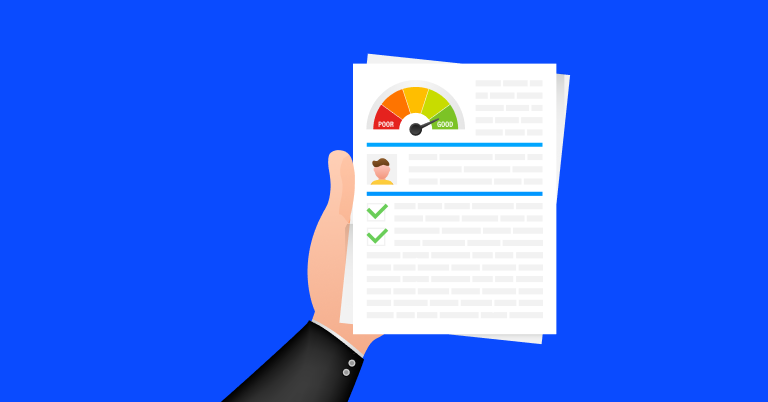Obtaining a loan has become more complex than it was in earlier times when the concept of loans was introduced in India. Today, lenders meticulously evaluate an applicant’s CIBIL credit score before approving a loan. Depending on this score, lenders may reject a loan application, offer a loan at higher interest rates, or extend credit at the most competitive rates available in the market. Essentially, the CIBIL credit score holds the key to your loan approval journey.
What is a CIBIL Credit Score?
CIBIL (Credit Information Bureau (India) Limited) is a credit reference agency that tracks credit histories and other financial details of individuals who have borrowed money. Banks, NBFCs (Non-Banking Financial Companies), financial institutions, and credit card issuers regularly submit their consumers’ financial records to CIBIL. This data is then used to update each consumer’s credit history.
A CIBIL credit score is a three-digit numerical representation of a consumer’s borrowing habits. It includes details such as:
- Loans availed
- Repayment behavior
- Types of credit accounts maintained
- Duration of credit accounts
- Instances of defaults or delays
This comprehensive financial snapshot helps lenders assess the creditworthiness of potential borrowers.
CIBIL Credit Score and Its Impact on Loan Approvals
Lenders use the CIBIL credit score to determine the level of risk involved in granting credit. A high score reflects responsible financial behaviour, while a low score raises concerns about the borrower’s ability to repay the loan.
Generally, a score of 750 or above is considered excellent by lenders and significantly increases your chances of loan approval. On the other hand, a poor score may result in higher interest rates, stricter terms, or outright rejection of your loan application.
Let’s explore how CIBIL credit scores impact different types of loans:
1. Auto Loans
Auto loans allow you to finance the purchase of a vehicle, whether it’s a two-wheeler or a car. Most lenders prefer a CIBIL score of at least 700 for auto loans. A higher score ensures favourable terms and lower interest rates. While it is possible to secure a loan with a score below 700, you may have to pay higher interest, increasing the overall cost of the loan.
2. Personal Loans
Personal loans are unsecured, meaning they don’t require collateral. As a result, they already come with higher interest rates compared to secured loans. Lenders rely heavily on the applicant’s credit score to gauge their repayment capability. A score of 750 or above boosts your chances of approval and ensures lower interest rates. Conversely, a low score could result in exorbitant interest rates or even rejection.
3. Home Loans
Home loans are used to finance property purchases or borrow against existing properties. These loans typically offer a repayment tenure of 5 to 30 years, and the amount granted can cover 80–85% of the property’s value. For home loans, a CIBIL score between 750 and 900 is ideal and indicates that you are a low-risk borrower. Borrowers with scores between 550 and 700 may still secure loans but with higher interest rates. A score below 550 is usually a deal-breaker for lenders.
Why CIBIL Credit Scores Matter to Lenders
Lenders place significant importance on CIBIL credit scores for two primary reasons:
1. Comprehensive Debt Repayment History
Your credit score reflects your financial responsibility. The CIBIL report provides lenders with detailed insights into your past repayment behaviour, including instances of defaults, delays, or consistent payments. Borrowers with a strong repayment history are more likely to secure loans easily.
2. Debt-to-Income Ratio Assessment
This ratio measures the proportion of your income used to service debts. A high debt-to-income ratio signals a higher risk of default, which may result in loan rejection. Maintaining a healthy balance between income and expenses is crucial to keep this ratio low.
How MobiKwik Can Help Improve Your CIBIL Credit Score
The MobiKwik app simplifies credit card bill payments with its easy reminder feature. This ensures you never miss due dates, helping you avoid late fees and penalties.
By paying your bills on time, you can positively influence your credit score, enhancing your chances of securing loans at favourable terms in the future. MobiKwik’s user-friendly platform empowers you to manage your finances seamlessly, making it an invaluable tool for maintaining a healthy credit profile.
FAQs on CIBIL Credit Scores and Loan Approvals
1. How much CIBIL credit score is required to get a loan?
Most lenders prefer a score of 750 or above. A score between 720 and 750 can still fetch you good loan offers, albeit at slightly higher interest rates.
2. Can I get a loan with a CIBIL credit score of 670?
While a score of 670 is considered low, some lenders may still offer loans. However, the interest rates will be higher, and you may need to provide a guarantor or collateral.
3. How can I increase my CIBIL credit score quickly?
To improve your score, follow these tips:
- Pay debts on time and in full.
- Keep your credit utilization ratio below 30%.
- Maintain a healthy mix of credit types.
- Monitor your credit report for inaccuracies.
Remember, credit score improvement takes time—typically 4 months to a year, depending on your financial behaviour.
4. Can I buy a home with a CIBIL credit score of 630?
Yes, it is possible. However, you may need to arrange for a co-borrower with a high credit score or offer collateral to secure the loan.
5. Is it possible to achieve a CIBIL credit score of 900?
Reaching a score of 900 is challenging but not impossible. It requires flawless financial behaviour, including timely repayments and maintaining a low credit utilization ratio. Even minor deviations can affect your score.
Conclusion
Your CIBIL credit score plays a pivotal role in determining your eligibility for loans and the terms you receive. By maintaining financial discipline, such as paying debts on time and keeping your credit utilization low, you can ensure a strong credit profile. Leveraging tools like the MobiKwik app can further streamline your financial management, helping you stay on top of payments and improve your creditworthiness over time.



